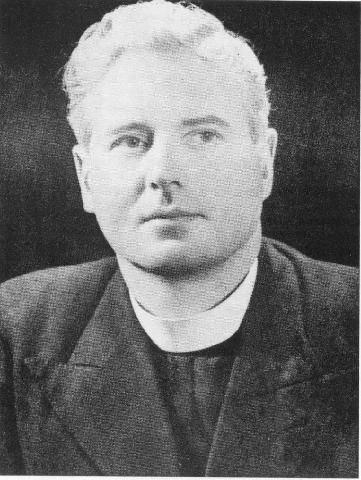Sydney MacEwan
I wish to thank Keith A Shilcock for the recording (As I sit here) and picture. I wish to thank Anton Bieber for the recordings (Silent worship, Sweetly she sleeps my Alice fair, My Nancy, Mary Shaw) and label scans.
Born in Glasgow, MacEwan grew up in a poor environment but with music, as the family frequently gathered to play and sing. He began to learn the violin, but first appeared in public singing in a holiday camp competition – he won. Through his early schooling with the Jesuits (when he sang regularly as boy soprano), he managed to enter Glasgow University where he met Compton Mackenzie, at that time Lord Rector but also creator and editor of the newly-formed "Gramophone" magazine. This friendship benefited MacEwan throughout his career, starting with an introduction to John McCormack (then living in Roehampton) who heard and liked his voice. (Interestingly the other houseguest was Fulton Sheen, later the Bishop of New York and Archbishop of Rochester.) Mackenzie also paid the fees for vocal training with the great Harry Plunkett-Green (considered the finest teacher at that time) at the RAM; this grounded MacEwan's technique and style, and around this time his 1st records were made (for "Parlophone" 1934–36). These are a particularly fascinating group of songs: firstly, as some have only been recorded by MacEwan (and just the once); secondly, as they show a remarkable interpretive understanding, plus a vocal confidence, astounding in a singer of only 25. MacEwan made numerous trips to America and Australasia, where he was a highly respected artist with concerts sold-out wherever he travelled. He continued these tours after closing his professional career to become a priest in the Catholic Church (ordained 1944). He made records into his 60s, his last "Suffer little children" in Dublin 1972. His autobiography (1973) "On the high Cs" – the title defines his humorous and selfless approach to life – is a delightful read, with many memories about other artists and acquaintances. For what it is worth, I feel that MacEwan belongs in the rare group of singers that tell a story rather than sing a song (like John McCormack or Salli Terri). His octave range was not wide and in later records a little unsteadiness crept in, but he used what he had with honesty and commitment – if not a great tenor, certainly a great artist.
Personal memory: Keith A Shilcock, April 2003
|




